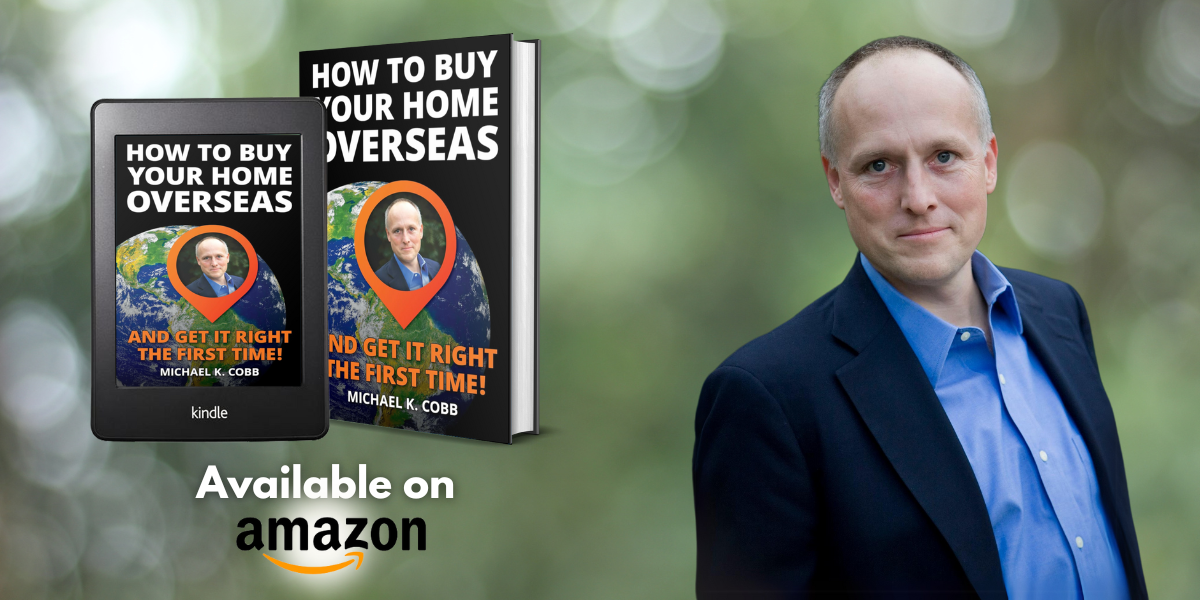By: Scott Stokes
Investing in overseas real estate offers exciting opportunities but comes with its own set of challenges, from legal complexities to cultural differences and market volatility. Michael Cobb, a seasoned professional in the international property sector and founder of ECI Development, shares key strategies to help investors make more informed decisions and reduce the potential for costly mistakes.
Why Buying Property Abroad is Different from Domestic Markets
Purchasing real estate in emerging markets can be quite different from buying in North America or Europe. In developed countries, consumer protection laws provide buyers with certain safeguards to ensure legal and structural integrity. However, many international markets operate with fewer protective measures, where investors must take extra precautions to avoid issues such as fraudulent transactions, incomplete paperwork, or substandard construction.
Cobb cautions against making impulsive purchases—what he describes as “Margarita Madness”—where buyers, caught up in the excitement of a new destination, rush into decisions without proper due diligence. Taking the necessary time to research and understand the market is critical in preventing financial setbacks and ensuring a more secure investment.
The Role of Trusted Experts in International Purchases
Navigating foreign legal systems can be challenging without professional guidance. Cobb recommends working with independent, experienced legal counsel—preferably a local attorney unaffiliated with the seller—to ensure contracts are valid and secure. Many embassies provide lists of English-speaking lawyers who can assist foreign buyers in understanding local laws and regulations.
Additionally, consulting a Certified International Property Specialist (CIPS) may prove beneficial. While hiring professionals may add to initial costs, their expertise can help prevent legal and financial complications, offering greater security and confidence throughout the investment process.
Cultural Differences That Impact Buying Decisions
In addition to legal and financial considerations, cultural factors can play a significant role in international property purchases. For example, in some parts of Latin America, homes are often built without hot water plumbing—a detail that foreign buyers sometimes overlook. Architectural practices can also vary; many homes in these regions feature closed-off kitchens, which may not align with the open-concept living spaces that are common in North America.
It’s also important to understand what comes with a property purchase. In some regions, basic fixtures, appliances, and even the utility infrastructure may not be included in the price, meaning buyers should account for additional costs that could arise after the purchase.
How ECI Development is Reshaping International Real Estate
Cobb’s interest in international real estate began in the 1990s when he founded a mortgage company in Belize. His experience working with foreign buyers highlighted frustrations with local construction practices, including poor electrical layouts and missing amenities.
Recognizing the gap between local construction methods and international buyer expectations, Cobb founded ECI Development in 1996. The company’s mission is to develop communities that cater to global buyers while also respecting local culture, ensuring that homes are both functional and welcoming.
Sustainable Development for Lasting Communities
ECI Development places a strong emphasis on sustainability in its projects, integrating modern conveniences with eco-friendly design principles. Cobb notes that for a community to thrive, it typically needs to reach a critical size—around 200 to 300 homes—to attract essential services like shops, cafés, and medical facilities.
Beyond just economic development, ECI also focuses on the environmental and social impact. In many developing regions, deforestation and unsustainable land use have been exacerbated by economic instability. Through real estate projects, ECI aims to create jobs, which, in turn, contribute to long-term sustainability while helping foster stable, prosperous communities.
Key Takeaways for First-Time International Investors
For those new to overseas real estate, Cobb offers practical advice: take action. He suggests allocating between 5% to 10% of an investment portfolio to international property as a means of diversification and as a hedge against potential fluctuations in domestic markets.
He also encourages investors to differentiate between perceived and actual risks. While some may hesitate to invest abroad due to unfamiliarity, they may unknowingly accept higher risks in daily life—such as distracted driving. Using data and expert advice rather than fear-based thinking is essential for making more informed, sound investment choices.
Building a Legacy Through Smart Investment
Beyond financial gain, international real estate investment can also be a pathway to creating a meaningful legacy. Whether it’s securing a dream home in a tropical location, generating passive income, or supporting ethical development, Cobb believes that strategic property investment can offer both personal fulfillment and long-term benefits.
By taking a thoughtful and well-researched approach, investors can successfully navigate international real estate and potentially enjoy both financial rewards and a fulfilling lifestyle abroad.
Find your copy of How to Buy Your Home Overseas on Amazon.
Published by Jeremy S.




















